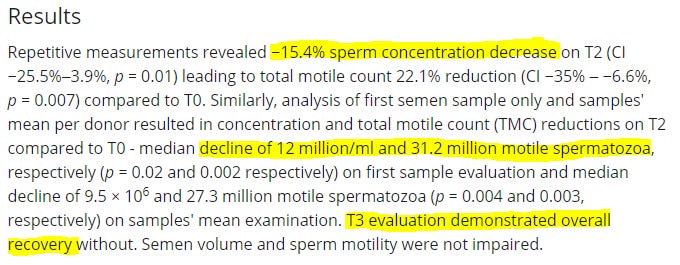This is important to understand because it could have a longer term impact on male fertility is an immune response against sperm may have been activated.
Longer term risk with COVID-19 vaccines are unknown and all unusual patterns related to vaccination could indicate trends towards future issues.
Gat, Itai, et al. "Covid‐19 vaccination BNT162b2 temporarily impairs semen concentration and total motile count among semen donors." Andrology 10.6 (2022): 1016-1022.
The earlier JAMA study in June 2021 had been reassuring because it showed an increase in sperm counts at 70 days after vaccination.
My question then was, “why did the vaccine have any impact on sperm counts?”
Gonzalez, Daniel C., et al. "Sperm parameters before and after COVID-19 mRNA vaccination." JAMA 326.3 (2021): 273-274.
The blood testes barrier keeps sperm separate from the rest of the body to prevent an antigenic response. The paper below makes the hypothesis that specific cells involved in sperm maturation have ACE-2 and could potentially be targeted by virus.









Share this post